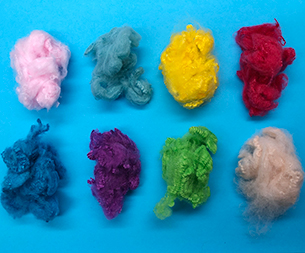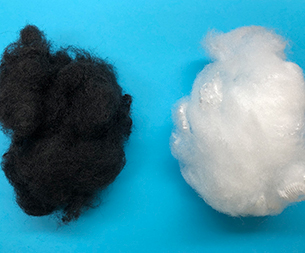Turkey is one of the world's largest textile exporters, but since the beginning of this year, textile exports have fallen sharply, capacity utilization has fallen by at least 30 percent, and some small-scale yarn producers have even stopped production altogether. Why is Turkey's textile industry experiencing a "cold winter"? What impact will the textile slump have on the Turkish economy?
Reporter Chen Huihui: 70% of Turkey's ready-to-wear and clothing products are mainly sold to the EU and the UK. The raw material supply and processing services of many well-known European brands come from Turkey. However, Turkish exports of textiles and raw materials to the EU fell 22.5 per cent in the first six months of this year compared with the same period last year.
Sharaf Fayat, President of the Readymade and Garment Industry Conference of the Union of Turkish Chambers of Commerce and Commodity Exchanges: The first problem is the decrease in demand in the main market, the European Union. Due to the economic recession in the EU and the United States, the total world trade in garments and textiles has decreased by about 15%.
In addition, rising costs have also made the Turkish textile industry less competitive internationally. In recent years, Turkey has experienced high inflation, high energy prices and rising labor costs. European consumers now pay about 40 per cent more for a T-shirt made in Turkey than for one made in countries such as Bangladesh and Vietnam, up from 15 to 20 per cent a few years ago.
Head Office reporter Chen Huihui: Data show that, affected by multiple factors such as shrinking demand in major markets such as the European Union, the capacity utilization rate of the entire textile industry in Turkey has fallen by at least 30%, and the capacity utilization rate of some yarn manufacturers has even fallen by 50%.
The production floor is empty, with five or six workers filling a handful of orders. The manufacturer of lining fabrics for jeans has deeply felt the chill of the industry this year.
Mohammed ARSLAN, Istanbul TEXTILE PRODUCER: From last year to this year, our production is down 30 to 40 percent because of the sharp drop in orders. Some businesses are slowly closing, and others that have cut production are considering layoffs.
In 2022, Turkey's textile exports reached $10.4 billion, or about 75 billion yuan. Garment exports amounted to 21.2 billion US dollars, about 150 billion yuan, ranking fifth and sixth in the world respectively. Industry insiders pointed out that as one of Turkey's pillar industries, the rise and fall of the textile industry will have an impact on the overall economy.
Hayati Akbarba, Chairman of the Garment and Textile Industrialists Association in Ankara, Turkey: The textile industry has always been the locomotive of the Turkish economy, and we must find ways to improve the current situation, otherwise it will seriously damage the Turkish economy and employment. Figures show that the current economic losses have reached about 10%.
Akbarba believes that the current situation, the textile industry winter will continue in the first half of next year, but if the government can take effective measures to encourage exports, curb inflation, boost the economy, is expected to be the fastest second half of next year, Turkey's textile industry is expected to recover.
Declaration: The content of this article is organized from the Internet, and the copyright belongs to the original author; If there is infringement, please inform in time and contact to delete.
- Jiangsu Haibang New Material Co.
- China's textile industry is at a
- Key Guide to Selecting Polypropy
- The impact of the Federal Reserv
- The core performance advantages
- China Textile Machinery: Driven
- The core applications of polypro
- Textile foreign trade has shifte
- How to choose the right polyprop
- Cross-border textile merchants a
- Markets
- Automotive Products
- Nonwoven Lining
- Geosynthetics
- Liquid Filtration
- Apparel and Textiles
- Hygiene Products
- Building and Construction
- Other Markets
- Contact Us
- Contact Haibang





